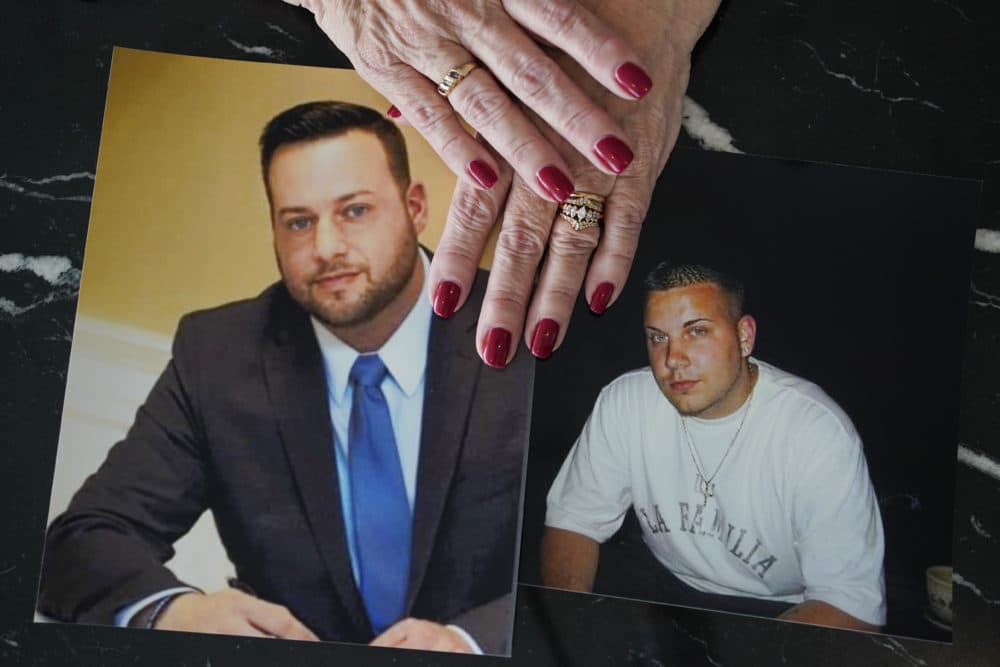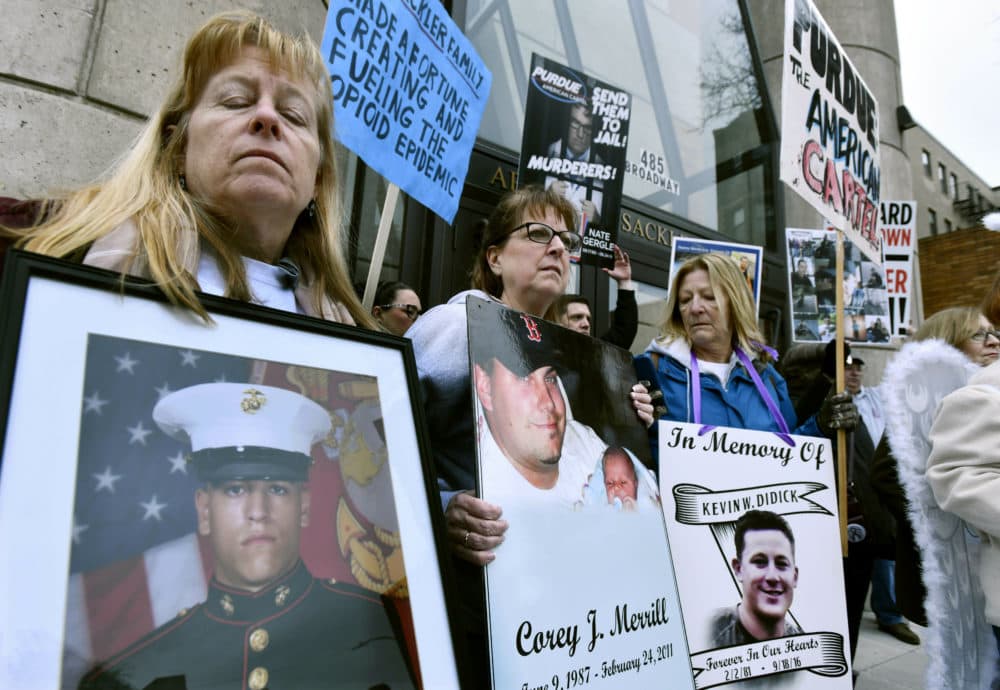Advertisement
Commentary
The opioid epidemic has claimed 500,000 lives. These stories need to be heard

Cheryl Juaire lost two of her three sons to opioids. Corey died in 2011. Sean followed 10 years later.
Last week, after years of lawsuits, Cheryl and 25 other victims had the chance to speak directly to members of the family that owns Purdue Pharma. The entire two-hour hearing took place over Zoom, with people telling stories about personal struggles with addiction and the loss of loved ones.
Two members of the Sackler family, Theresa and David, were visible on screen, but expressed no emotion. Richard Sackler’s camera was off. None of them apologized or voiced remorse. I'm sure their attorneys advised them to remain quiet, but still, it is almost impossible to understand.
The victims weren’t surprised. They have been fighting against Purdue Pharma and the family for years and didn’t expect much. In the end, the Sacklers don’t matter. For the victims, the experience of sharing stories in that community, the chance to be heard, provided an opportunity for healing.
For the victims, the experience of sharing stories in that community, the chance to be heard, provided an opportunity for healing.
Approved in 1995, OxyContin has produced approximately $30 billion for Purdue Pharma over the years. The drug was aggressively and unethically marketed, as company executives, including former chairman and president Richard Sackler, misrepresented the safety profile of the drug, intentionally ignoring evidence of its addictive potential and growing street value. This marked the beginning of the opioid epidemic.
The epidemic has claimed the lives of over 500,000 Americans since 1999, with over 100,000 deaths in the last year alone. That’s 500,000 families who have lost a loved one, and millions of stories from those who have endured loss and struggled because of opioids. These stories need to be shared.
Research tells us that storytelling is good for our mental and physical health. The act of engaging with our own stories, of writing a narrative that involves the recounting of deep feelings and emotional challenges can improve our wellbeing. James Pennebaker, a psychologist who studies expressive writing, attributes the benefits to “the value of having a coherent, organized format as a way to give meaning to an event and manage the emotions associated with it.”

Cheryl told me she wrote many drafts of her testimonial in preparation for the hearing. Because of time limitations, she was forced to cut it in half, which was hard, but also clarifying. She spoke about how her youngest son Corey was prescribed OxyContin after hernia surgery when he was 15, and from there slid into a long struggle with addiction and ultimately death by overdose at age 23. He left behind an infant daughter. Cheryl remembered her son Sean, who first tried opioids with his younger brother. Sean struggled with survivor’s guilt and substance abuse disorder for years until opioids killed him, too. She described the “gutteral noise” that escaped her body when she learned of each son’s death. To her surprise, she cried throughout her testimony. “I am not someone who cries,” she told me, “but the floodgates opened.”
Many shared pictures of the deceased, and personal details about who they were, bringing to life their humanity. One woman played a recording of her 911 call when she had found her son dead. It was heart wrenching and painful to hear, according to Cheryl, but also “a blessing, because we understood each other.” Indeed, Cheryl has been there twice.
Advertisement
Science tells us that sharing stories in a supportive community — being witnessed — is good for us. When it comes to health, studies have consistently shown that patients who rate their physicians as high in empathy (i.e., present, caring, responsive) have better health outcomes — shorter duration of symptoms with the common cold, improved mood and quality of life in cancer patients, better control and fewer complications with diabetes. In addition, listening to stories told by others who are navigating similar health challenges benefits us, mentally and physically. Whether or not the Sacklers took the testimonies to heart, those who shared their stories at the hearing grew stronger together.
It turns out that people are more likely to perceive an opponent’s argument as rational and true when expressed as a personal story rather than as a list of facts and numbers.
Finally, storytelling can promote social change. When it comes to moral and political disagreements, conventional wisdom holds that people are more powerfully influenced by facts and statistics as opposed to personal anecdotes and experiences. A 2021 meta-analysis of 15 studies found the opposite to be true. When people disagree on hot-button issues, such as abortion, gun control, and same-sex marriage, accounts of personal experience — stories do a better job than facts and statistics in enhancing respect between opponents. It turns out that people are more likely to perceive an opponent’s argument as rational and true when expressed as a personal story rather than as a list of facts and numbers.
I have seen first-hand how sharing stories of those touched by the opioid epidemic can heal individuals and communities, and how these stories can be used to educate the public, decrease stigma, and promote positive social change.
The Sacklers may never take responsibility for their actions, but I hope the victims who shared at the hearing on March 10th feel proud and empowered by what they did together, and I hope they will continue to share their stories for the benefit of all of us.
